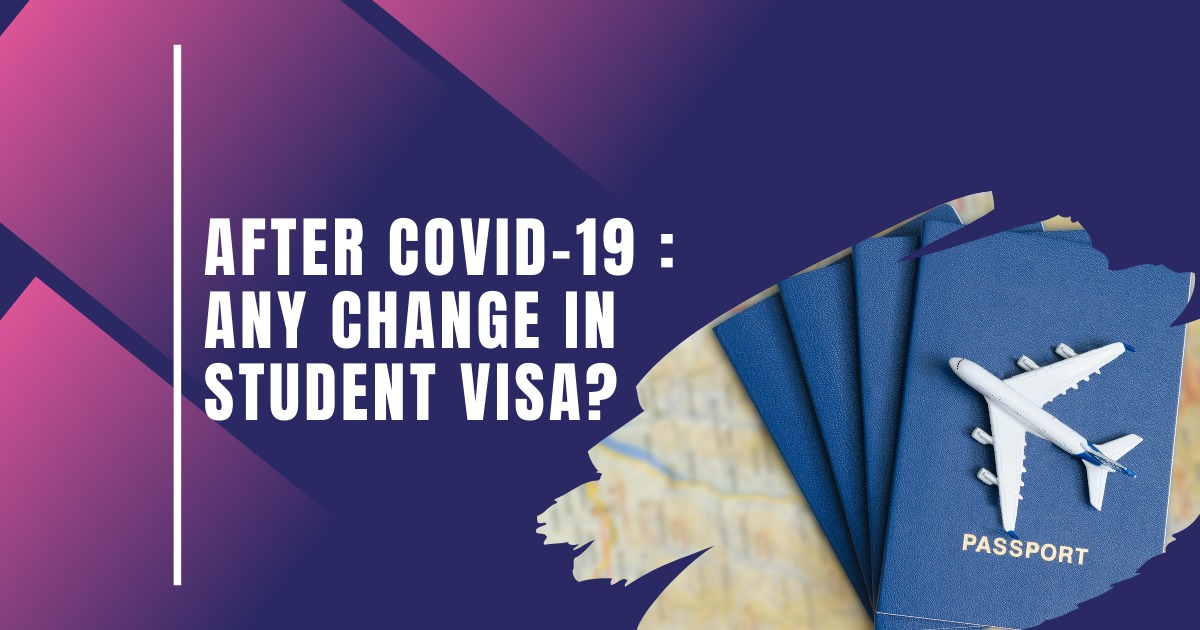
IELTS Exam
IELTS (International English Language Test) is formulated to provide a fair and accurate assessment of English language proficiency that will help you to work and study for your migration to a country where English is the main language of communication. This includes countries such as Australia, Canada, the UK, the USA, and New Zealand. IELTS evaluates a test taker’s English language proficiency across four skills: listening, reading, writing and speaking delivered on either a computer or paper.
The International English Language Test (IELTS) is one of the most popular English tests conducted worldwide. Over the years, millions of IELTS Tests have been taken. Undoubtedly, IELTS is an open opportunity for students who wish to sharpen their English communication skills and want to study abroad.
More than 10,000 colleges and universities worldwide accept IELTS scorecards and exceptional educational opportunities for zealous students.
Why take the IELTS Test?
If you are looking for work, to live or to study in an English-speaking country then you must demonstrate a high level of English language proficiency. English is one of the most native-speaking languages in the world, with more than 380 million people worldwide.
IELTS is the most popular test for those who wish to migrate to Countries such as Australia, Canada, New Zealand, the UK or any other country. It is globally recognized by more than 11,000 organizations in more than 140 countries, universities, schools, and immigration bodies including 3,400 institutions in the USA.
A lot of students get confused about why an IELTS score is required to study abroad. The uncomplicated answer is that the foreign universities and Visa-granting authorities need to ensure that you will not have any communication obstacles while staying abroad and have a high command and wonderful understanding over English language, that’s why your overall IELTS score is so important.
Types of IELTS Exam
There are two types of IELTS exams one is IELTS Academics and another is IELTS General Training.
Listening and speaking sections are the same for both kinds of exams. The reading, writing, and listening sections of the IELTS test are completed on the same day of the test without any break in between.
IELTS Academic Test
If you plan to get higher education and professional registration in an English-speaking country you might need to give the IELTS Academic Test. The IELTS Academic Test evaluates your English-language capability at a scholastic level to decide if you are prepared to learn at an undergraduate or postgraduate level or work in an expert setting, such as a doctor, nurse, teacher, or lawyer.
The IELTS Academic Test looks at your English language proficiency across the four skillsets: reading, listening, writing, and speaking.
IELTS General Training Test
The IELTS General Training Test is for those who wish to live and work in English-speaking countries of the world. It focuses mainly on assessing a person's proficiency, confidence and comfort while communicating in daily situations you are likely to encounter in an English-speaking country.
Taking this test would you like to:
- Emigrate to English-speaking countries including Canada, Australia, New Zealand, and the UK.
- Work in English-speaking countries or get another job.
- Opening a door to a new future.
IELTS & TOEFL
Often, many international students are confused between choosing IELTS or TOEFL, as universities abroad ask for their exam score. It is totally up to you as an exam taker as to which exam is fits you but still remember that IELTS is more preferred exam for Canada, Australia, New Zealand and the UK while TOEFL is popular among those applicants who want to study in the USA, Germany, France, and many other countries.
Highlights of an IELTS Exam
|
Particulars |
Details |
|
Exam Name |
IELTS Exam |
|
Full form of IELTS |
International English Language Testing System |
|
Official website of IELTS |
www.ielts.org |
|
IELTS exam popular for |
Study, work and emigrate to English-speaking countries. |
|
IELTS sections |
Listening, reading, writing and speaking |
|
Mode of Examination |
Computer and Paper |
|
IELTS fees |
15,500 fees for registration |
|
Score range |
Score scale is 1 (lowest) to 9 (highest) |
|
Conducted by |
IDP Education Pvt. |
Why Choose the IELTS exam: The world's favorite test for English
- The world-famous test for English
More than 30 million IELTS tests have been conducted by IDP since the test was created in 1989. Every week on an average more than 60,000 people take an IELTS test.
- IELTS test is acceptable in more countries than any other English test
If you want to move abroad to study and need an English language test. IELTS is one of the famous exams for English language proficiency. IELTS test is accepted by Australia, Canada, New Zealand, the UK, and many other countries.
- IELTS questions set by real person
We realize that a test can be a stressful experience. Our analysts help you in feeling good so that you can do as expected. You talk to genuine people, in reality - that is the reason, with IELTS, your English is surveyed by genuine people.
- IELTS test is available where you are
You can take the IELTS test in almost every country in the world. IELTS is available in 1,600 test points in more than 140 countries worldwide. If you can’t find the IELTS center, prefer to attempt an online session of the IELTS test.
How to prepare for IELTS Test
To have a good chance to do better in the IELTS exam, you need to prepare for this exam. We have put together the following materials to help you get ready and know what to expect in your test. Down we share the list of how to prepare for the IELTS exam.
- Take a practice test
- Understand the test format
- Be aware of the exam time constraints
- ILETS progress checks - official practice test
- Understand the band score
- Study and set goals
How to register for the IELTS test 2023
Make sure to keep your passport handy at the time of registration as you want your passport number at the hour of registration. Aside from this, you also need to carry out your passport on the test day. IELTS registration should be possible in simple tasks.
- First, you need to visit the official page of the British Council registration page.
- Create an account with the British Council.
- Find out the nearest IELTS centers.
- Register for the IELTS test and pay the online fee.
Those who are below 18 years old need the parent's guardian to book the IELTS test. Once the IELTS exam registration is complete, your test centers will send a written confirmation to you with information about the date and time of the IELTS exam.
Eligibility Criteria for the IELTS exam
The main qualification for the IELTS test in India and across the globe is that students should not be less than 16 years of age. Anyone aged 16 or above can take this examination, independent of their orientation, gender, or foundation. Special cases are possibly made when a school needs the IELTS scores for confirmation purposes. There could be no upper age limit fixed by conducting bodies.
IELTS Exam Patterns
The exam pattern for IELTS is divided into 4 segments on which a student is examined i.e, listening, reading, writing, and speaking. The IELTS exam has two modules-
- Academic Module
- General Training Module
Before elaborating on the IELTS exam pattern, let's know about what are these two modules:
- Academic Modules- IELTS Academic Module is for students and academic purposes. Students applying to study abroad can take this module. It's a module to qualify for your entry into a university abroad.
- General Training Module- IELTS General Training Module is for those who migrate abroad for work purposes or just for migrating purposes.
This was a small difference between the two modules of the exam now let's know about the pattern that is followed in the IELTS exam-
|
Exam |
No. of Questions |
Time |
|
Listening |
40 |
30 minutes |
|
Reading |
40 |
60 minutes |
|
Writing |
No. of Tasks- 2 |
60 minutes |
|
Speaking |
Examined into 3 parts |
11-14 minutes |
Now, To make it more clear to the students we have below mentioned about the tasks and the exam pattern in an elaborate manner-
Listening (30 minutes)-
Under the listening exam students will be made to hear 4 different recordings in the native English accent of the country the student has applied for. After listening to recordings the students have to answer certain questions.
Based on the answers the students will be examined for their listening skills and their understanding of the detailed content that was in the recordings.
Reading (60 minutes)-
A. Academic Reading
In the Academic reading exam students are questioned with different types of questions like multiple choice, matching features, matching information, identifying details, identifying the writers, table completion, flow charts, short-answer questions, process, diagrams and similar other categories of questions.
B. General Training Reading
The General Training Reading test is divided into 3 sections in which section 1 consists of two, three, or more short texts, Section 2 consists of 2 short texts, and the last section contains 1 long text.
Under this, questions like completion of notes, completion of tables, matching sentence endings, matching the headings, completion of summary, and similar other questions are asked from students. However, the context of questions in all three sections differ from each other.
Writing (60 minutes)-
A. Academic Writing
Under the Academic writing section the test is taken in 2 Tasks.
In Task 1- Students are asked to describe the facts, diagrams, graphs, and tables about the given content. A minimum of 150 words of answers are expected from a student, it should not be short, at least not less than 150 words.
With this test, students are tested for their ability to collect important information and overview it in the best-organized manner by using accurate academic format language.
In Task 2- Students are asked to write in an academic or semi-formal format about the given topic. A minimum of 250 words is a must for consideration of the answer. Any type of answer out of the context will be penalized.
This task is eligible to test the thoughtfulness and relevance of the facts mentioned by the applicant in his/her answer book along with the accuracy of the language used by the student.
B. General Training
The General Training test is divided into 2 tasks to check the ability of the students.
In Task 1- Students are provided with a situation and are asked to write a letter requesting or explaining the situation in a formal, semi-formal, or personal format.
In Task 2- Students are asked to write an essay responding to a point of view, problem, or argument provided in the problem. This can be even written in a personal format.
By this, the student is tested for his/her form of conversation through letters, ways of responding to a problem, and its elaboration along with the way of mentioning the step of issues in a written format. How all the content is written and what is the accuracy of the language used to write the content is also a concern of the above-mentioned tasks.
Speaking (11-14 Minutes)-
Speaking exam is divided into 3 parts-
- In Part 1- The examiner asks general questions to the applicant, about his life, family, background education, and similar other questions.
- In Part 2- Students are provided with cards and are asked to talk/ discuss the particular topic mentioned in the particular card given to him/her. Before starting, students are given 1 minute to prepare for the topic.
- In Part 3- The applicant will be asked questions from part 1 and will have an opportunity to keep or discuss more abstract ideas in front of the examiner. This part takes the last 4-5 minutes of the speaking round.
This was all about the IELTS exam and we hope students will find this helpful for their dream to study abroad.
1. Is studying in Canada a safe option for Indian students who want to study abroad?
Yes! The students who choose to study abroadeven prefer Canada the most, and that is why India has a lot of students in Canada due to the opportunities and security available there for students studying abroad.
2. Can an IELTS test be written with a pen?
No! An IELTS test can not be written with a pen. The student needs to use a pencil as the answer sheets are scanned with a computer which cannot read pen.
3. What is the environment in universities abroad?
The universities abroad are rich with a healthy and friendly environment. Students from around the world choose different countries to study at international universities. This is why the top universities abroad have multiverse environments and people with rich brains from all over the world.
4. Till what age an IELTS test can be given?
There is no age limit to give the IELTS exam. Students can give as many attempts as much he/she want.
5. Which is the better option, IELTS or TOEFL?
The exams can not be compared. Both are language eligibility tests, however a minor difference between the two is, the IELTS is more acceptable in American institutions whereas the TOEFL exam is more acceptable overseas.


.png)
.png)
.png)
.png)
.png)


.png)
.png)

